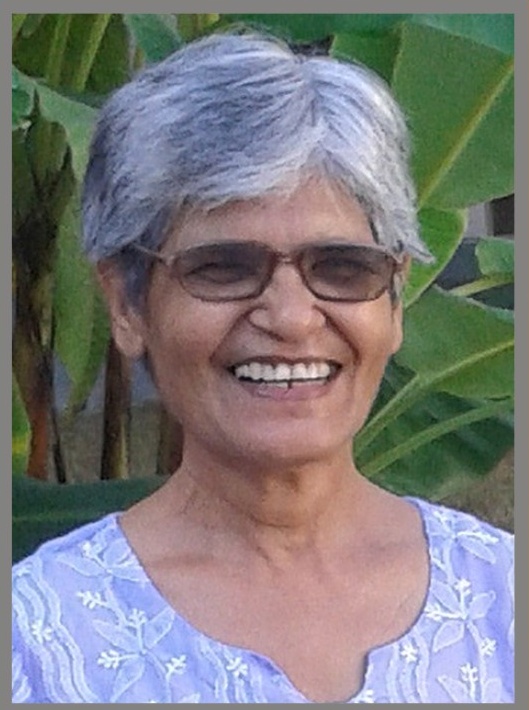Vedas and Upanishads - Dr. Sheela Daga
A Brief Introduction
Writer - Dr. Sheela Daga, Vidyalakar
(Retired Pracharya Kanya Gurukul Postgraduate College, Dehradun)
This book is given free of cost!
For donations kindly use UPI - vishwaguru@kotak
Introduction
When people visiting me discovered that I have worked on the Vedas, many were eager to know about them. Even many educated people do not know anything about the Vedas. Also, in current translations, many things still need to be corrected. For the last several years, I have thought that a small book should be prepared in which a brief introduction to the Vedas would be given, so that the reader can quickly get a general introduction to the Vedas and Upanishads. It took a little time. When I decided to write it, a book by Yogi Sri Aurobindo, 'Basis of Indian Culture', came into my hands. What an ordinary reader or writer says on a subject is less important than the statement of a revolutionary, well-known, settled, respectable thinker and profound scholar. His views are considered authentic and unanimous.
Sri Aurobindo discussed two Western writers in his book, William Archer and John Woodruff. Archer, in his book, argued that all Indian literature – Vedas, Upanishads, philosophy, epics, sculpture, paintings etc. are 'beastly' writings. In his writings, Woodruff intended to reveal the importance of Indian civilisation and culture. While doing this, Woodruff wrote that it would be a great misfortune for the whole world if these writings were destroyed, as there is a massive crisis in today's human civilisation. Their disappearance would increase the disasters of the world. There don't need to be any defects or shortcomings in culture. Still, it is wrong to prove someone inferior by counting only those deficiencies to elevate oneself and degrade others.
By reading books of many Western writers such as William Archer, and Indian authors who are mental slaves of Western culture, and seeing the plight of Indian society today, many people are not ready to believe that there was anything good in ancient India. The argument is made that human life goes from the bottom to the top, not from good to evil. If we think seriously and try to understand, it will be seen that in the context of India, it is proved that civilisation was highly advanced but has now declined. This decline can also be seen in everyday life. Some people were living a good life at the beginning of their lives, but in old age, they suffer. It is also challenging for anyone to remain normal while suffering persecution and disrespect. In some families, someone from an older generation has been compassionate, intelligent, and civilised. Still, in the same family, someone from the next generation has a very evil nature, and is cruel and rude. This proves that there cannot be a single scale or criterion for human communities to be civilised and advanced.
The Indian psyche and thought did not attach importance to worldliness or to material progress. As a result, other castes set their feet here with their diplomatic tricks and forced the Indian society to live in the barest of all ways. When poverty increases, the ordinary person can no longer be patient; on the other side, greedy people are ready to do anything in their selfishness. The Indian psyche suffered from these ironies. It is in human nature to become more simple. But with life becoming more and more convenient and comfortable, it is easy to get lost. It is impossible for the ordinary person not to succumb to greed, especially the poor. There are many other reasons why Indian society has become so corrupt and stagnant today. Much effort and time are needed to push it from indolence towards hard work.
The most salient feature of Indian culture is its concept of spirituality, which is a product of Vedic literature. If all ancient Indian literature, including the Vedas, Upanishads, nine philosophies, philology, grammar, Ayurveda, musicology, mathematics, ethics, Kama shastra, economics, epics, Panchatantra, etc., which are found today, is evaluated without bias, it would show that there should be some basis for developing the talent of composing such high-quality poetic literature, philosophy, arts and texts, which are useful for the life of the society. It is no small thing that Yoga, which was developed in India, is getting international recognition.
Even today, there are two options before the Indian psyche: search for the God in the Himalayan shrines, or become a billionaire in America or elsewhere abroad, because spiritual ceremonies start from birth in India.
The urge to know our Indian culture is visible in today's new generation. This is a good sign; therefore, it has become necessary to make such a book where the general introduction of Vedas and Upanishads can be found.
Dr. Sheela Daga, Vidyalakar
+91 7060763868


